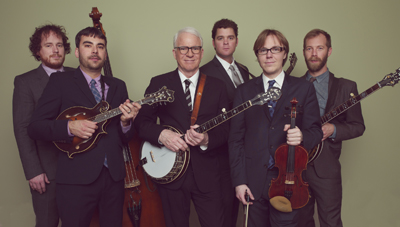Some parties are the natural flow of things. Humans naturally reward themselves after working hard to complete a project, to celebrate the accomplishment, and of course, quench their thirst. There’s a spontaneous urge to fire up the grill, kill the fatted calf or pop open the champagne when we check off a big task from the to-do list. Thanksgiving is a tradition formed from this natural phenomenon in a post-harvest fervor. Everyone in the family or community worked hard to bring in the harvest. Instincts showed them what to do next. With hearts full of pride and a strong sense of accomplishment, they broke out the musical instruments, prepared a feast and tapped the barrel of wine. A toast was in order: “to a bountiful harvest, to the assurance of a prosperous winter, and the cherished friends and family around this table!”
I’ll not decry the commercialization, the religious co-opting, or the political grandstanding that may or may not taint this otherwise spontaneous tradition. Instead, I’d like to point out one way to perhaps access the natural phenomenon that is illustrated in Thanksgiving—authentic, spontaneous celebration and gratitude. Do something. Set goals, work hard and then reward yourself. And the more the merrier. Find a group or organization that is making the world a better place and jump in there. Just remember to stop every now and then and celebrate your accomplishments.
Regarding the “thanks” part, you’re thanking yourself and those that helped. But gratitude doesn’t always have to be associated with an accomplishment. There’s never any shortage of things to be thankful for. Everything that’s wrong with the world is actually fodder for gratitude when that flaw is dormant. I had an eye infection last week, but how many weeks of my life have I not had an eye infection? I don’t have any ingrown toenails right now—that’s awesome! My hot water tank works, my lawn doesn’t need mowing, I’m not having issues in my marriage, there’s just the right amount of oxygen in the air for me to live on, I have full use of the left side of my body, and our giant dirt clod called Earth is floating in space. That’s awesome! It could all change tomorrow, but right now, there are countless reasons for me to muster thanksgiving.
Of course, there’s always God to thank if that floats your boat, but religion doesn’t have a monopoly on gratitude. Scientific research has revealed a strong connection between gratitude and good physical and mental health.* It is highly probable that gratitude can boost the immune system, relieve stress and improve relationships. Many New Age gurus endorse starting each day with a “thank you” or two. Your body doesn’t care who or what you’re thanking; the benefits are in the attitude of gratitude. Even anti-theist Richard Dawkins is grateful. Listen to this excerpt from the Intelligence Squared Conference in November 2009:
When I lie on my back and look up at the Milky Way on a clear night and see the vast distances of space and reflect that these are also vast differences of time as well, when I look at the Grand Canyon and see the strata going down, down, down, through periods of time which the human mind can’t comprehend . . . it’s a feeling of sort of an abstract gratitude that I am alive to appreciate these wonders, when I look down a microscope it’s the same feeling, I am grateful to be alive to appreciate these wonders.
Gratitude is a loaded word. It is typically aroused in response to receiving of a gift. The receipt of something implies a source. Who or what gave me this gift? Where should I direct my gratitude? Where does Dawkins go with his gratitude? Really, it’s nobody’s business. I’m reminded of Steve Martin’s song, “Atheists Ain’t Got No Songs”. I had the fortune of seeing him and The Steep Canyon Rangers perform it live at Bonnaroo 2010.
Christians have their hymns and pages.
Hava Nagila’s for the Jews.
Baptists have the rock of ages.
Atheists just sing the blues.
Romantics play Claire de Lune.
Born agains sing He is risen.
But no one ever wrote a tune.
For godless existentialism.
For Atheists there’s no good news.
They’ll never sing a song of faith.
In their songs they have a rule.
The “he” is always lowercase.
The “he” is always lowercase.
Some folks sing a Bach cantata.
Lutherans get Christmas trees.
Atheist songs add up to nada.
But they do have Sundays free.
Pentecostals sing, sing to heaven.
Gothics had the books of scrolls.
Numerologists count, count to seven.
Atheists have rock and roll.
Catholics dress up for Mass.
And listen to Gregorian chants.
Atheists just take a pass.
Watch football in their underpants.
Parody aside, Martin elucidates what might be an awkward circumstance around the family table for those who find the idea of saying “thank you” to an ineffable God problematic. Take heart: An agnostic who errs on the side of love in his/her treatment of others stands a much better chance of living “righteously” than those who have forfeited their common sense to adhere to a bronze age code of conduct.
Whatever you do, do not shame yourself for not being grateful enough. The last thing all the great aspects of your life want to produce is guilt. Let them produce what is instinctively normal—gratitude. Everything is what it is. Your ability to find the good equips you to say “yes” to the moment. And by maintaining a good attitude, your immune system, your outlook and your very instincts will access the spirit of Thanksgiving that wants to pop a cork, fire up the grill and set a banquet table in the “presence of mine enemies.” (Ps. 23)
*women.webmd.com/features/gratitute-health-boost
cfidsselfhelp.org/library/counting-your-blessings-how-gratitude-improves-your-health














